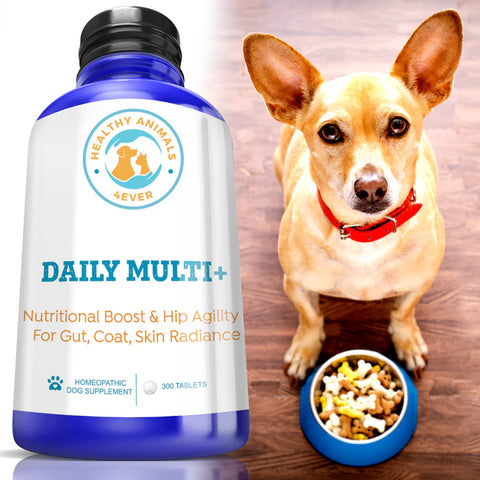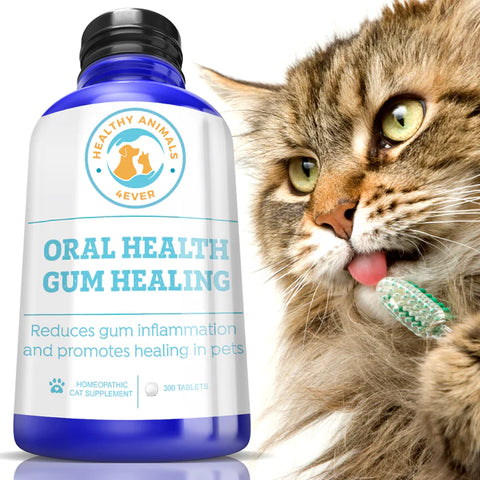Natural Ways to Boost Your Pet's Immune System
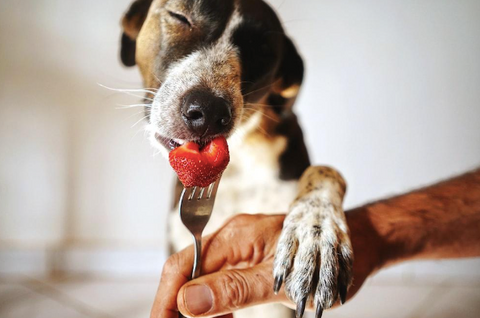
Our pets are more than just companions; they're cherished members of our families. Just as we strive to keep ourselves healthy and strong, ensuring our pets have robust immune systems to ward off illness and enjoy vibrant health throughout their lives is equally important.
While veterinary care is crucial, incorporating natural methods to bolster your pet's immunity can provide added support and wellness benefits.
- Wholesome nutrition
Nutrition is the foundation of your pet's health, influencing everything from energy levels to coat condition and immune function. A diet lacking essential nutrients can compromise your pet's immune system, making them more susceptible to infections, allergies, and other health issues. On the other hand, providing a well-rounded and nutrient-dense diet can help bolster their immune defenses and promote optimal health.
Several nutrients play vital roles in supporting your pet's immune system:
- High-quality protein sources, such as lean meats, fish, and eggs, are essential for building and repairing tissues, including those involved in immune function.
- Vitamins C and E are antioxidants that help neutralize free radicals and support immune cell function. Vitamin A is crucial for maintaining healthy mucous membranes, a barrier against pathogens.
- Minerals zinc, selenium, and iron contribute to immune function and play roles in various enzymatic reactions within the body.
- Omega-3 fatty acids possess anti-inflammatory properties that help modulate immune responses and promote overall health.
- Prebiotics and probiotics are beneficial bacteria that support a healthy gut microbiome, which plays a significant role in immune function and overall health.
Now that we understand the importance of specific nutrients let's explore some wholesome foods that can help support your pet's immune system:
- Lean meats: Incorporate lean protein sources like chicken, turkey, and lean cuts of beef or pork into your pet's diet to provide essential amino acids for immune function.
- Fish: Rich in omega-3 fatty acids, fish such as salmon, mackerel, and sardines can help reduce inflammation and support immune health.
Daily Multi+ is a natural support for your dog's joint pain, liver issues, and nutritional deficiencies. It promotes optimal organ function, including heart and kidneys. It contributes to a shinier coat and healthier skin. All-natural formula. Safe and easy to use.
- Fruits and vegetables: Offer a variety of fruits and vegetables, such as carrots, sweet potatoes, blueberries, and spinach, to provide vitamins, minerals, and antioxidants that support immune function.
- Eggs are a complete source of protein and contain nutrients like vitamin A and selenium, which are beneficial for immune health.
- Plain, unsweetened yogurt containing live cultures can provide probiotics to support a healthy gut microbiome and enhance immune function.
Remember to consult with your veterinarian to ensure that your pet's nutritional needs are met and to address any specific dietary concerns or health conditions they may have.
- Regular exercise
We all know the importance of regular exercise for maintaining our health and well-being, but did you know it's equally crucial for our pets, too? Just like humans, pets benefit immensely from staying active, and one of the many perks of regular exercise is its positive impact on their immune systems.
Regular exercise isn't just about keeping your pet fit and trim; it also significantly supports their immune system. Here's how exercise benefits your pet's immune health:
- Physical activity helps stimulate circulation and promote the production of white blood cells, essential for fighting off infections and pathogens.
- Exercise releases endorphins, the body's natural feel-good chemicals, which can help reduce stress levels in pets. Chronic stress can weaken the immune system, so keeping your pet active, you're helping them manage stress and maintain a healthy immune response.
- Regular exercise contributes to your pet's overall health and vitality, making them less susceptible to illnesses and better equipped to combat infections.
How do we incorporate exercise into our pet's routine?
Taking your dog for daily walks provides essential physical exercise and mental stimulation as they explore and interact with their environment. Aim for at least 30 minutes of brisk walking daily to keep your pup's immune system in shape.
Engage your pet in interactive play sessions with toys like balls, frisbees, and tug-of-war ropes. These activities provide physical exercise and strengthen your bond with your furry friend.
Consider activities that challenge your pet mentally and physically, such as agility training, nose work, or puzzle toys that dispense treats. These activities keep your pet physically active and provide mental stimulation, essential for their overall well-being.

If your pet enjoys the water, swimming is an excellent low-impact exercise that's easy on the joints and provides a full-body workout. Many dogs love splashing around in the water, so consider taking them to a pet-friendly beach or swimming pool for aquatic fun.
Set up a makeshift obstacle course using household items like cones, tunnels, and ramps in your backyard or living room. Guide your pet through the course using treats or toys to encourage them to navigate the obstacles and get their heart pumping.
- Sufficient hydration
Adequate hydration is essential for maintaining your pet's overall health and immune function. Ensure fresh water is always available, especially during warmer months or after physical activity. Consider adding wet food to your pet's diet, as it contains higher moisture content and can contribute to their daily fluid intake.
Here's why hydration is crucial for your pet's immune system:
- Water is a medium for transporting nutrients to cells and tissues throughout the body. Proper hydration ensures that essential nutrients reach immune cells, enabling them to function optimally. Additionally, water facilitates the removal of metabolic waste products and toxins from the body, preventing their accumulation, which can compromise immune function over time.
- The lymphatic system is a network of vessels and nodes that plays a critical role in immune surveillance and response. Lymph, the fluid within the lymphatic system, contains immune cells such as lymphocytes and macrophages that help identify and eliminate pathogens. Adequate hydration supports the circulation of lymph and the efficient transport of immune cells throughout the body, enhancing the body's ability to mount an immune response when needed.
Weight loss is a natural support for reducing overeating in cats. It is the energy-boosting formula. It promotes the healthy elimination of extra body weight. All-natural formula. Easy to use.
- Hydration is essential for maintaining the health and integrity of mucous membranes, which serve as a primary barrier against pathogens in the respiratory, gastrointestinal, and urinary tracts. Adequately hydrated mucous membranes are better equipped to trap and expel invading microorganisms, reducing the risk of infection. Dehydration can compromise mucous membrane function, making pets more susceptible to respiratory infections, urinary tract infections, and gastrointestinal illnesses.
- Hydration is essential for maintaining adequate blood volume and circulation. Proper blood flow ensures that immune cells and antibodies are efficiently transported to sites of infection or inflammation, where they can neutralize pathogens and promote tissue repair. Dehydration can lead to decreased blood flow and oxygen delivery to tissues, impairing immune responses and prolonging recovery from illness or injury.

- Stress reduction
Believe it or not, stress can weaken your pet's immune system and make them more susceptible to illness. Stress is a natural response to various stimuli, but it can harm your pet's physical and mental health when it becomes chronic or overwhelming. Chronic stress can suppress the immune system, making your pet more susceptible to infections, digestive issues, and other health problems. Additionally, stress can manifest in behavioral changes, such as aggression, excessive grooming, or withdrawal, indicating that your pet may be experiencing distress.
- Pets thrive on routine and predictability, providing them with a sense of security and stability. Establish a daily routine for feeding, exercise, playtime, and rest, and try to stick to it as much as possible. Consistency can help reduce uncertainty and minimize stress in your pet's life.
- Ensure your pet has a designated space where they feel safe and secure. Provide comfortable bedding, access to fresh water, and a quiet retreat where they can retreat when they need downtime. Minimize exposure to loud noises, chaotic environments, and unfamiliar stimuli that may trigger anxiety or stress.
- Boredom can contribute to stress in pets, so providing them with plenty of mental stimulation is essential. Engage your pet in interactive play sessions, puzzle toys, or training exercises to keep their mind active and stimulated. Consider rotating toys and activities regularly to prevent boredom and keep them engaged.
- Regular exercise is not only beneficial for your pet's physical health but also plays a significant role in reducing stress and anxiety. Take your dog for daily walks, engage in interactive play sessions, or provide opportunities for your cat to hunt and explore. Physical activity helps release pent-up energy and promotes relaxation, leading to a calmer and happier pet.
Emotional trauma recovery is a natural emotional trauma recovery remedy for all dogs. It promotes calmness and may help minimize anxiety. All-natural formula. Easy to use.
- Use positive reinforcement techniques to encourage desired behaviors and build trust and confidence in your pet. Reward good behavior with treats, praise, or playtime, and avoid punishment-based methods that can cause fear or anxiety. Positive reinforcement helps strengthen the bond between you and your pet and creates a positive association with training and obedience.
- Explore calming techniques such as massage, aromatherapy, or music therapy to help soothe your pet's nerves and promote relaxation. Lavender essential oil, for example, has calming properties that can help alleviate stress in dogs and cats when diffused or applied topically in diluted form. Always ensure your products or techniques are safe and appropriate for your pet's species and needs.
Remember to observe your pet's behavior closely and seek veterinary guidance if you notice signs of stress or anxiety that persist despite your efforts.
- Herbal support
Herbal supplements are derived from plants and botanicals known for their medicinal properties. When used appropriately, these natural remedies can help strengthen your pet's immune system, enhance their overall health, and alleviate various health concerns. It's essential to consult with a veterinarian before introducing any new supplement to your pet's regimen, as they can guide dosage, potential interactions, and suitability based on your pet's specific needs.
- Echinacea is a popular herb known for its immune-stimulating properties. It contains compounds that help activate white blood cells and enhance the body's defense against infections. Echinacea can benefit pets recovering from illness or experiencing weakened immune function.
- Astragalus is an adaptogenic herb that supports immune function by modulating the body's stress response and enhancing resistance to infections. It contains polysaccharides and flavonoids that stimulate the production of white blood cells and promote overall immune health.
-
Licorice root has anti-inflammatory and immune-modulating properties that can benefit pets with allergies, respiratory infections, or autoimmune conditions. It contains glycyrrhizin, which helps regulate immune responses and reduce inflammation.
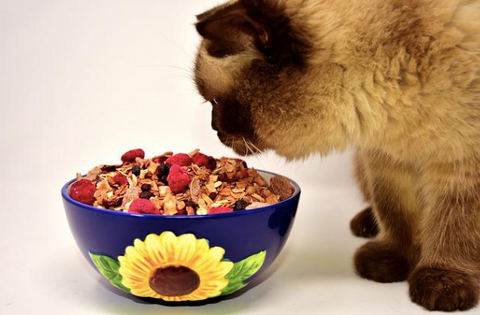
- Cat's claw is a vine native to the Amazon rainforest, known for its immune-enhancing and antioxidant properties. It contains compounds called oxindole alkaloids, which stimulate the activity of white blood cells and help protect against oxidative damage.
- Turmeric is a golden-yellow spice with potent anti-inflammatory and antioxidant properties. It contains curcumin, the active compound responsible for its immune-boosting effects. Turmeric can help support immune function and reduce inflammation in pets with chronic conditions or age-related immune decline.
- Spirulina is a blue-green algae rich in vitamins, minerals, and antioxidants. It supports immune function by enhancing the production of antibodies and boosting the activity of natural killer cells. Spirulina can benefit pets with allergies, skin problems, or weakened immune systems.
While herbal supplements can offer significant benefits for pets, it's essential to use them cautiously and under the guidance of a veterinarian. Always choose high-quality supplements specifically formulated for pets, as human products may contain harmful or inappropriate ingredients for animal consumption.
- Regular veterinary check-ups
While natural remedies can complement your pet's wellness routine, they should not replace regular veterinary care. Schedule routine check-ups with your veterinarian to monitor your pet's health, address any concerns promptly, and ensure they are up-to-date on vaccinations and parasite prevention. Your vet can also offer personalized recommendations for maintaining your pet's immune system based on age, breed, and medical history.
Oral health and gum healing is a natural remedy for gum disease and inflammation in cats. It promotes healing and optimal oral health. Aids in reducing pain. All-natural formula. Easy to use.
- Plenty of rest
Adequate rest supports your pet's immune system and promotes overall health. Provide a comfortable, quiet sleeping area where your furry friend can unwind and recharge. Establish a bedtime routine and encourage regular nap times throughout the day to help them get the rest they need to stay healthy and vibrant.
Homeopathic remedies for boosting the immune system
Homeopathy offers a range of remedies believed to support the immune system in pets. These remedies are selected based on the animal's specific symptoms, characteristics, and overall health and constitution. It's important to consult a qualified veterinarian trained in homeopathic principles to determine the most appropriate remedy for your pet's needs.
Arsenicum Album is often indicated for pets with weakened immune systems and susceptibility to infections, especially those accompanied by restlessness, anxiety, and digestive disturbances. Arsenicum album may help boost overall immunity and promote recovery from illness.
Thuja is commonly used in homeopathy to support the immune system and address skin conditions, urinary tract issues, and vaccine-related reactions in pets. It may be indicated for animals with chronic or recurring health problems and a history of suppressed immune function.
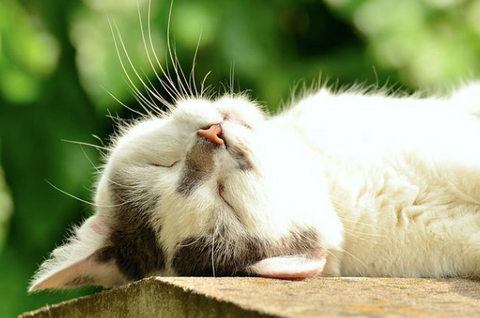
Silicea is a remedy that may be beneficial for pets with chronic or recurrent infections, slow-healing wounds, or weakened immune systems. It is often prescribed for animals that are easily fatigued, cold-sensitive, and prone to abscesses or suppurations.
Sulfur is a remedy that may be indicated for pets with skin conditions, allergies, or recurrent infections. It is often prescribed for animals with a strong constitution, excessive itching or scratching, and a tendency to overheat or seek warmth.
Calcarea carbonica is a remedy that may benefit pets with weak or sluggish immune systems, especially those prone to respiratory infections, digestive disturbances, or glandular imbalances. It is often prescribed for overweight, slow-moving animals and sensitive to environmental changes.
Natrum muriaticum is a remedy that may support the immune system in pets with a history of chronic illness, grief, or emotional stress. It is often indicated for reserved, withdrawn animals or prone to recurrent herpes infections.
It's important to remember that homeopathy is individualized medicine, and the selection of a remedy will depend on your pet's specific symptoms, health history, and overall constitution. Always consult with a qualified veterinarian trained in homeopathic principles to ensure the safe and appropriate use of homeopathic remedies for your pet's immune system.
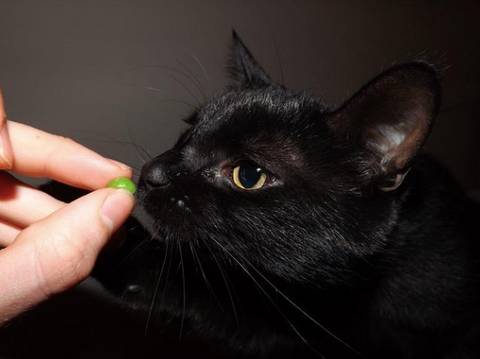
The Bottom Line
Nurturing your pet's immune system naturally involves a holistic approach encompassing nutrition, exercise, stress reduction, herbal support, and regular veterinary care.
By incorporating these simple yet effective strategies into your pet's daily routine, you can help them enjoy optimal health and vitality for years.
Remember, a healthy pet is a happy pet, and their well-being is worth investing time and care.









